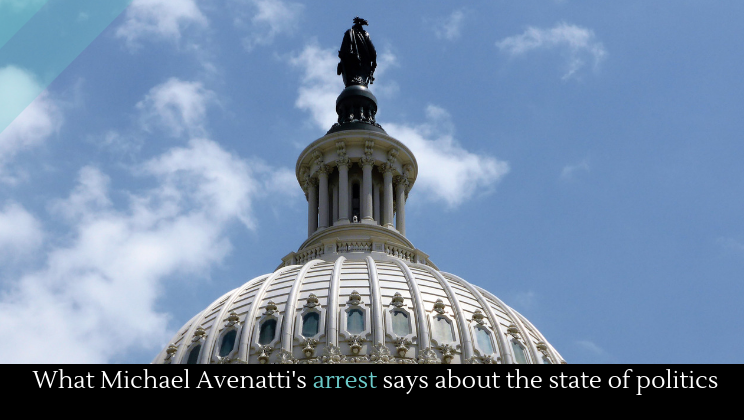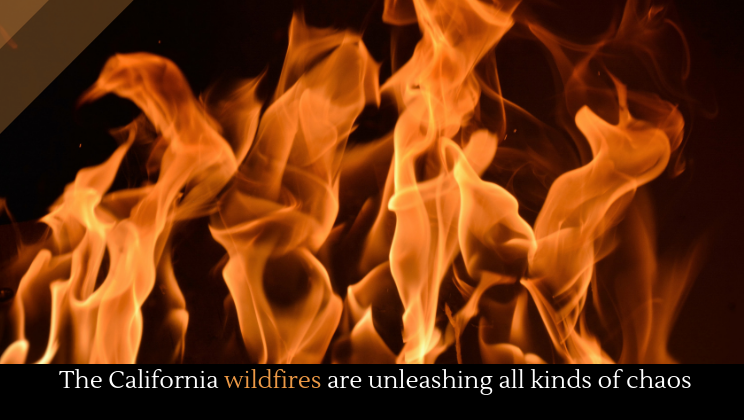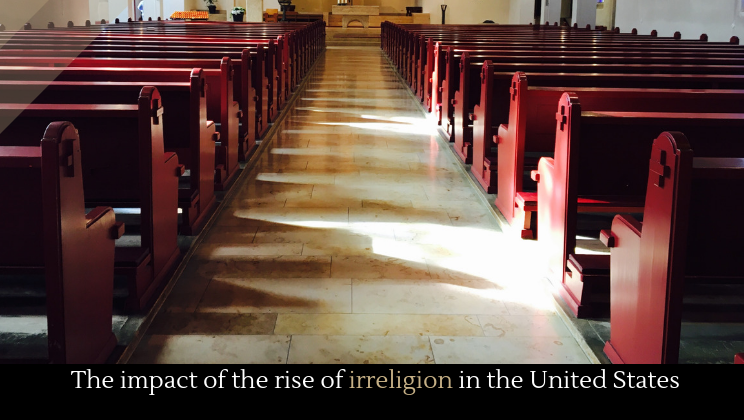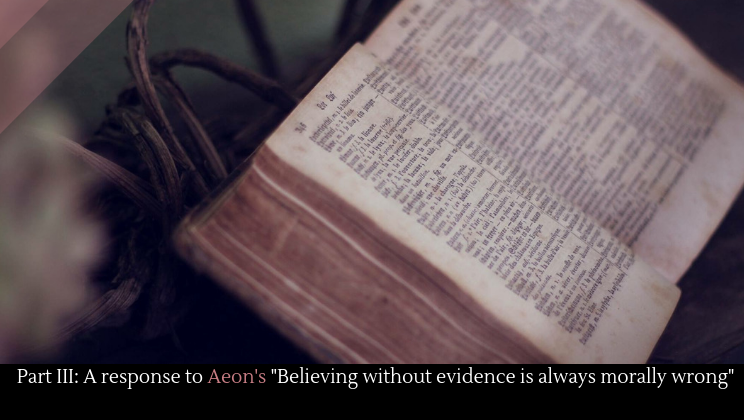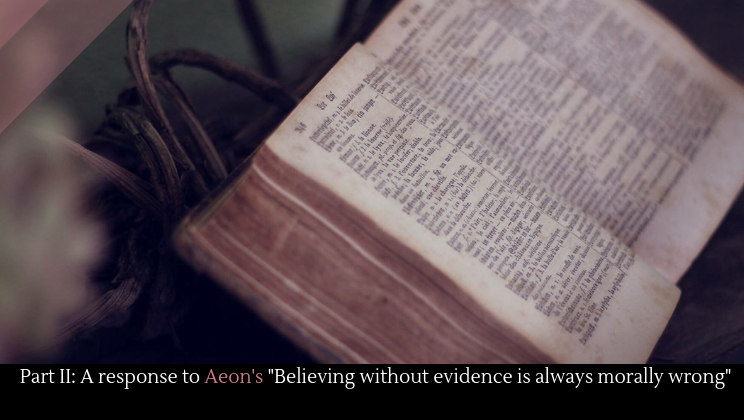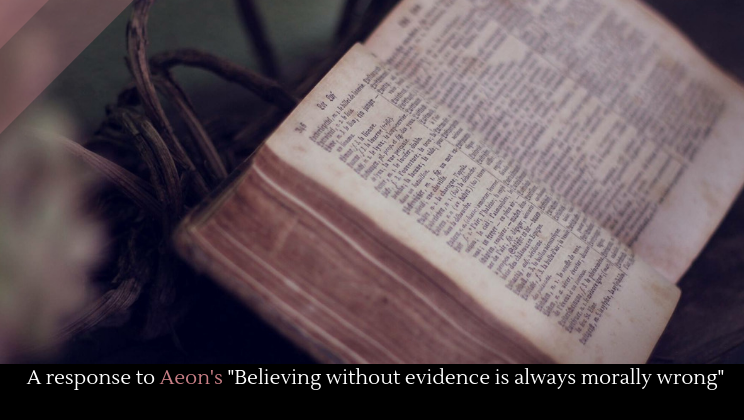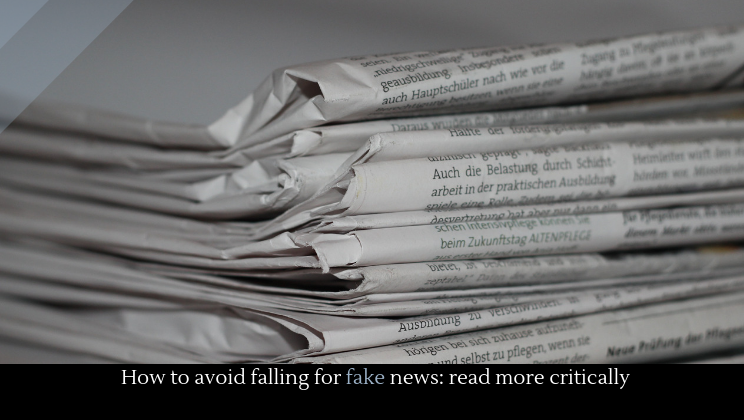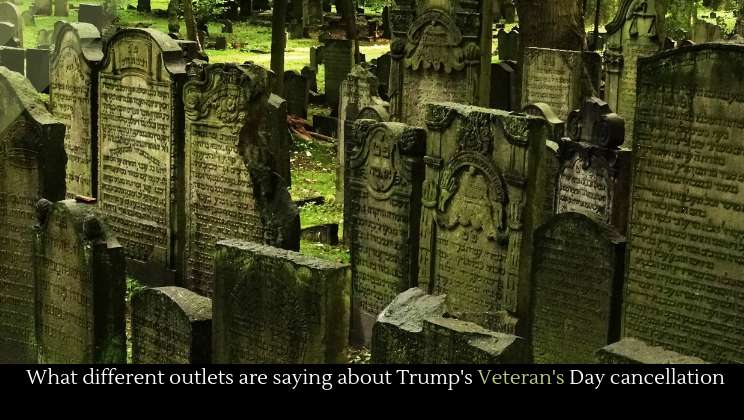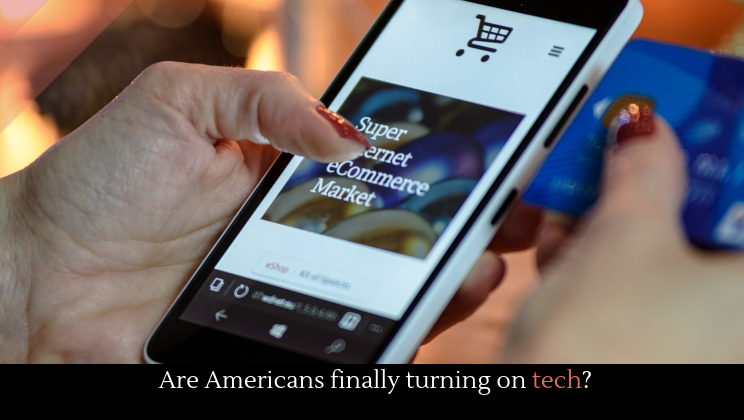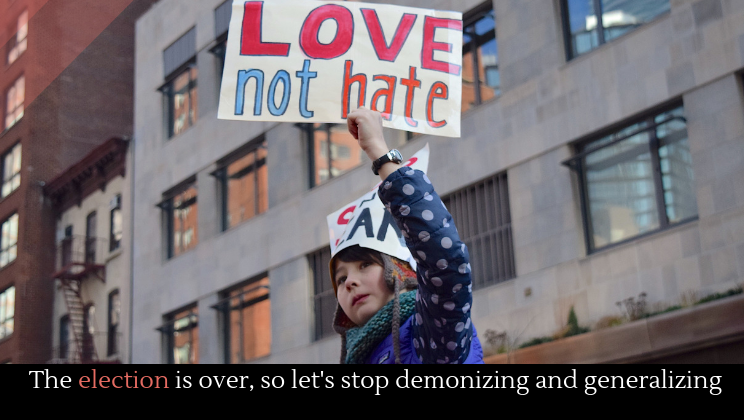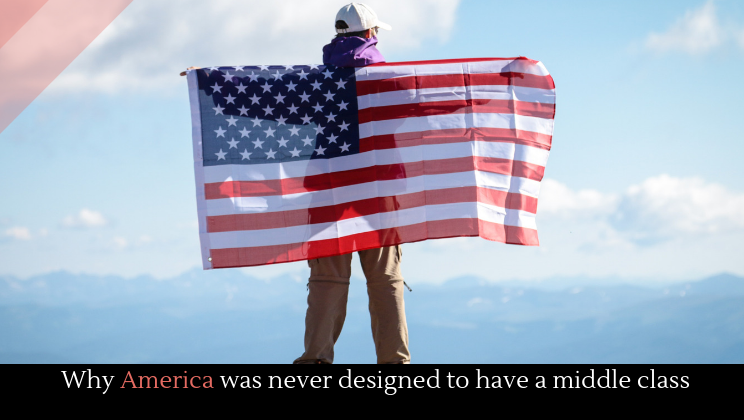Author: Josh Taylor
What Michael Avenatti’s arrest says about the state of politics
Posted by Josh Taylor / November 15, 2018Michael Avenatti, porn star Stormy Daniels’ attorney, has been arrested on charges of domestic violence. After he posted his $50,000 bail, he made a brief statement, according to ABC news: “I have never struck a woman. I never will strike a woman. I have been an advocate for women’s rights my entire career and I’m going to continue to be an advocate. I’m not going to be intimidated from stopping what I’m doing.” Further, Avenatti has also called the statements “bogus” and “completely fabricated.” According to the Guardian, “The victim in the case had visible injuries, according to officer Tony Im, a police spokesman.” Avenatti has hinted at a 2020 presidential run.
To recap the scenario so far: President Donald Trump had sex with a porn star called Stormy Daniels, and then he paid her (and another woman) hush money to keep their affair quiet. According to a recent Wall Street Journal piece, new evidence “raises the possibility that the president of the United States violated federal campaign-finance laws” with that hush money.
Stormy Daniels’s attorney, Michael Avenatti, sued Trump for defamation when Trump denied the payments. Avenatti then trickled information out to the media and promised to reveal facts that would further humiliate Trump. This catapulted him into the national spotlight.
Once in the national spotlight––which he got by suing the president of the United States on behalf of a porn star––Avenatti began to position himself for a 2020 presidential run.
Now, Avenatti is being investigated for domestic violence.
Let’s all just take a moment to reflect on the episode of Days of Our Lives that is our political climate. It should not come as a surprise, after all Trump did host his own reality show––and he had a pretty sweet cameo in Home Alone Two. The 2016 election season was a media circus, and since the election late-night shows have been a race to bash Trump. It’s easy to believe that the worlds of politics and entertainment are blending more than they ever have before.
But that’s just not the case. We tend to be shortsighted and think that the world now is terrible compared to what it once was, and that our political climate is a total mess, everything is going to the dogs, there’s nothing good on the radio anymore, and you know in my day we had to walk ten miles in the snow to get to school. For better or for worse, politics has always been a spectacle. The Washington Post refers to the Lincoln-Douglas debates:
“Yet the Lincoln-Douglas debates were also a traveling circus. Thousands of spectators, playing hooky from their monotonous farms, flocked to each small-town venue from the surrounding countryside. Bands played. Cannons boomed. The candidates literally led parades to the stage.”
We should also remember that Joe McCarthy was an incredible showman, and that Ronald Reagan was an actor. There’s nothing new in principle happening in current politics. We’re just more focused on it than we have been in the past.
More about politics.
Read MoreThe California wildfires are unleashing all kinds of chaos
Posted by Josh Taylor / November 15, 2018In case you didn’t know, California is on fire. And it’s on fire in a quite a few places. Sadly, the Camp Fire has claimed fifty-six lives (and counting), making it the deadliest in the stat’s history. The state-wide death total is fifty-nine. I lived in California for most of my life, and I can’t remember fire seasons as chaotic and horrific as the last two or three. If it’s true that fire seasons are getting worse, that might explain why there seems to be so much chaos surrounding this year’s wildfires. If you’ve been following the news, you might have gotten a sense of what I mean.
California is a land of contrasts: ocean and desert, mountain and valley, incredibly rich and extremely poor. The fires have made those contrasts even starker, especially the latter. According to a recent piece by Vice, California’s wealthy have a private firefighting force to help mitigate the worst of the fire’s damage:
AIG’s Private Client Group’s Wildfire Protection Unit, for instance, is made up of AIG employees who are certified through state or local authorities. In addition to protecting homes with flame retardants, these AIG employees respond to fires and map homes in real time as wildfires approach.
Keep in mind that Vice’s title is bad journalism and downright shameless: “Rich People Pay for Private Firefighters While the Rest of Us Burn.” Don’t conjure the wrong mental image. It does not seem that private firefighters out hosing down every rich person’s house––though Kanye sprung for that service. It seems that most just use the preventative services. Vice is vague about that point.
Other critics are suggesting that we just let Malibu burn. “Make your home in Malibu, in other words, and you eventually will face the flames,” writes Mike Davis. Malibu, Davis writes, was ecologically built to burn, and pretending otherwise is silly.
Victims of the wildfire are looking for someone to blame. A group of victims are already suing PG&E, even though fault has not yet been determined. Others are celebrating what blessings they do have, like the miraculous survival of a Model T:
When he is finally allowed back in, Mr. Westbrook will find a neighborhood in ruins. Houses are gone, trees stripped, power lines flattened. But there are odd patches of normalcy, testaments to the unpredictability of a wildfire. Down the block, an old Chevrolet El Camino was untouched. A festive lawn decoration in Mr. Westbrook’s yard survived. And so did the Model T.
More news.
Read MoreThe impact of the rise of irreligion in the United States
Posted by Josh Taylor / November 14, 2018The “Nones” are on the rise in America. “Nones” have no religious affiliation, and as of 2014 (some of the last really good survey data is from 2014) about 22% of Americans said they had no religious affiliation. This is not necessarily a paradigm shift in American religious history. There have always been vast numbers of Americans uninterested in religion. Historian of religion David Hall points out that these “horse-shed” Christians (called that because they tended to hang out and chat in the stables rather than participate in religious services) have been a part of our country since the founding.
But there are a few significant things to consider about the rising number of people who are openly unaffiliated. First, throughout American history, most people were at least nominally religious. But now, at least 7% are atheist and agnostic, and a further 15% are unwilling to affiliate with organized religion. That’s a big chunk of people who are entirely separate from the social and political influence of churches.
Politically active atheists are celebrating this change. Noting that most irreligious vote Democrat, this atheist blogger hopes that the non-religious will begin to cancel out the staunchly Republican evangelical bloc. That may or may not happen, but we can certainly expect to see partisanship increase as the number of outright atheists (currently around 3% of Americans) increase and become more politically active.
Second, the very way we think about religion is starting to change. In a recent post, I explained that Americans often tend to conflate religion with belief (or faith). While that makes some sense for Protestantism, it doesn’t work so well for other religions. There’s a famous scholarly article, for example, that argues that religious rituals don’t even require meaning, let alone faith. That’s a bit extreme for the point I’m making. What I’m trying to convey rather, is that if we’re going to understand how religion is evolving during the next fifty or so years, we are going to have to rethink what we consider religious. And to do that, we’re going to need a much more sophisticated understanding of what religion is and why we understand it the way that we do.
Finally, the rise of the religiously unaffiliated might have a broader political impact than simply voting blocs. The Freedom From Religion Foundation, for example, advocates for the separation of church and state, and frequently offers legal support for those wishing to end mandatory school prayer groups and other religious actions, practices, or items mixing in with government. As more Americans leave the church, and as church-goers push back, we can expect to see more contests over this issue.
More about religion.
Read MoreMedical doctors are taking on the NRA
Posted by Josh Taylor / November 14, 2018On November 7, the NRA fired off a tweet heard round the world.
Hours after this tweet, a former Marine took a handgun into a country western nightclub in California and murdered twelve people.
San Francisco doctor named Judy Melinek, forensic pathologist, read the tweet before heading into a perform an autopsy on a gunshot victim. From the Chronicle:
“We do our jobs every single day, and our job is to be an expert on what bullets do to bodies,” Melinek, a 49-year-old mother of four, told me this week. “We’re the ones who are called to the scene (of homicides). We are the ones who testify in court about the pain and suffering that happens because of gun violence. We’re the ones who see the consequences of lax gun policies.”
Incensed by the NRA’s tweet, she fired off her own:
By the time she was done with her autopsy, her post had gone––as it were––viral. Other doctors began to chime in. Dr. Marianne Haughe wrote: “I see no one from the @nra next to me in the trauma bay as I have cared for victims of gun violence for the past 25 years. THAT must be MY lane. COME INTO MY LANE. Tell one mother her child is dead with me, then we can talk.” Doctors began to post graphic pictures of gunshot-related surgeries––blood-spattered gowns and masks, bloody rags on floors, and bullets in metal pans.
The drama was sparked by a paper outlining a public health approach to reducing firearm deaths. CP Senior Vice President of Governmental Affairs and Public Policy Robert Doherty, co-author of the paper, commented: “All of our recommendations are supported by a comprehensive review of research on the causes of gun violence, & policies that could reduce it. Where the evidence is limited, we said so,” he wrote. “All of our recommendations were reviewed and approved by ACP physician-members who serve on our health policy committee, several of whom are gun owners.”
It’s hard to say how impactful the twitter onslaught will be. The NRA has heretofore been immune to criticisms, even in the wake of their terrible replies to mass shootings. It’s unlikely that these doctors’ tweets will leave the liberal echo chambers where they’re currently reverberating. That being said, doctors and nurses are still among the most respected professions in the nation. It’s possible that their criticisms might be more effective than others––if they’re heard.
Read MorePart III: A response to Aeon’s “Believing without evidence is always morally wrong”
Posted by Josh Taylor / November 13, 2018In the previous section, I claimed that Francisco Mejia Uribe’s argument that we need to think more critically about news sources was a good but based on terrible evidence: William Kingdon Clifford’s essay”The Ethics of Belief.” I demonstrated that Clifford’s essay was entangled with anti-Catholic bias and rooted in Protestant ideas about the nature of humanity and human …
Read MorePart II: A response to Aeon’s “Believing without evidence is always morally wrong”
Posted by Josh Taylor / November 13, 2018In the first part of this piece, I summarized Francisco Mejia Uribe’s argument from the Aeon piece “Believing without evidence is always morally wrong,” taken fromWilliam Kingdon Clifford’s essay”The Ethics of Belief.” The upshot of that piece was this: Bad information leads to bad beliefs, and bad beliefs lead to bad actions. The moral of Uribe’s article is a good one: think more critically. The problem is that the author did think through his argument or his subject matter as thoroughly as he should have.
The root of the problem begins with the context of Clifford’s 1877 essay. The essay cannot be understood outside of its historical context, which in turn has implications for its contemporary significance. “The Ethics of Belief” emerged from “The Higher Criticism” or the historical criticism movement of the mid-to-late eighteenth century. The scholars of this movement turned a critical eye to the Bible, using historical methods to challenge the traditional, religious interpretations of the text. In brief, they challenged the belief-centered or faith-centered approach to the Bible––and eventually, as a result, the world. With that context, it’s easy to see how Clifford’s attack on belief without evidence emerged from this movement. William James, a pioneer of modern psychology, challenged Clifford’s attack on belief with his own defense of it––a defense that’s still cited by religious people today.
Clifford’s essay was thus rooted in the way he and his contemporaries thought about religion––and indeed about the world in its entirety. Like many people today, Clifford assumed that religion was synonymous with belief. As startling––and even counterintuitive or downright wrong––as it might sound, religion is not just about belief, and it certainly does not come from belief. Although Clifford was criticizing the over-credulity of his religious contemporaries, in his attacks on belief he was himself reinforcing its importance. In other words, by challenging the centrality of belief to religious life, he was making it the subject of debate. When William James replied to Clifford, he helped solidify belief’s role as the primary aspect of religious life. But belief is not, as I noted above, central to religion. Belief is central to a religion: Protestant Christianity.
“I am the resurrection and the life,” Jesus said to Martha, “The one who believes in me will live, even though they die (John 11:25).” Since the Reformation, Protestants have channeled their focus towards “belief.” This is known as sola fide, or “justification by faith alone.” They emphasize this in order to distinguish themselves from Roman Catholicism, which holds that ritual actions are as important as belief. Even in the late 1800s, anti-Catholicism in England (where Clifford was from) and America held enough sway over the social milieu to cause Clifford and his contemporaries to overlook the importance of actions. As good post-Enlightenment Protestants, they worried entirely about the life of the mind. Both Clifford and those he was arguing against agreed that the mind and the beliefs that took root there were the first principles of social life. You believe first, and then you act. The problem with Catholics, they felt, was that they were primitive––they used action instead of belief. Belief alone was sufficient, as long as that belief was proper.
Already we begin to see the problem in using Clifford’s 1877 essay to make any kind of point about modern society: the essay itself was mired in religious polemics and assumptions rooted in a particular time and place. With this foundation in mind, in the next piece I will argue that Uribe’s ultimate point is entirely moot, which is all the more detrimental because he’s still right! We do need to be more critical readers and more thoughtful citizens, he just (unfortunately, again) did not properly model critical reading or thoughtfulness.
More about news.
Read MoreA response to Aeon’s “Believing without evidence is always morally wrong”
Posted by Josh Taylor / November 12, 2018Written by Francisco Mejia Uribe, an executive director at Goldman Sachs in Hong Kong, Aeon’s “Believing without evidence is always morally wrong” is a response to the “fake news” epidemic. Mr. Uribe and I are in total agreement here, as you’ll notice if you red this morning’s article about critical thinking and fake news. In this article, I respond to Mr. Uribe’s argument the spirit of critical reading, critical thinking, and friendly debate. The goal is not to suggest that he’s wrong, only to explore the ideas he presents, their consequences, and their alternatives.
First, what’s does “Believing without evidence” (“Believing”) argue? The article uses a philosophical essay called “The Ethics of Belief,” written in 1877 by William Kingdon Clifford. In a nutshell, Clifford argues that “it is wrong always, everywhere, and for anyone, to believe anything upon insufficient evidence.” Uribe uses this principle to argue that “[f]alse beliefs about physical or social facts lead us into poor habits of action that in the most extreme cases could threaten our survival.” From Clifford, Uribe extrapolates that it is not only our own mental and physical states that suffer from over-credulity, but it is out entire social networks. That happens because “careless believing turns us into easy prey for fake-news pedlars [sic], conspiracy theorists and charlatans.” Bad information leads to bad beliefs, and bad beliefs lead to bad actions.
Uribe makes a particularly fascinating point when he suggests that Big Data has the potential to create a feedback loop: bad beliefs fed into search engines and other fodder for big data will produce more and worse beliefs. In sum, Uribe applies Clifford’s essay to the technology age in order to argue that we all need to think and read critically, so we don’t fall prey to bad information that builds bad beliefs and then, as a result, bad actions.
Uribe’s intention with the article is a good one. But the foundations of it are shaky at best because, ironically, Uribe himself fell into the very trap that his article warns about. Specifically, Uribe failed to contextualize Clifford’s essay, and as a result he reproduces not only some of the questionable elements of the essay but also the problems that have resulted from those elements in the last 150 years. Tomorrow, I will post my response to Uribe. It’s a long treatment, as I aim to treat his arguments with respect, so it’s better as a standalone piece.
More about news.
Read More
How to avoid falling for fake news: read more critically
Posted by Josh Taylor / November 12, 2018Take a second and really try to answer those questions before reading on.
The title of the song is “We Both Go Down Together.” The question is, are the characters’ feelings mutual? Maybe you’re starting to guess where this is headed: What evidence is there that the woman is in love with the narrator? What’s really going on in this song? A rich, spoiled boy saw a poor girl and decided he loved her. He “laid [her] down” while she “wept,” but her “soul was willing.” How did he know her soul was willing? How can we trust him? The answer is that we can’t.
The reality is there are two possible interpretations of this song. The first is straight forward. The narrator and the woman are really in love, and they’re forced to commit suicide or be separated. The second requires a bit more thinking. The woman has no choice but to have sex with the rich, powerful young man. He forces her to commit suicide with him rather than live under the thumb of his parents, so he asks her to come over and enjoy the view from his veranda. When she gets there, he pulls her off.
It takes work to come up with that interpretation, however, and sadly most people are not interested in that kind of mental labor. According to a recent study, laziness is the root of the “fake news” crisis, not political bias. Media consumers don’t want to do the work to think for themselves, they want the interpretations handed to them. As the example above shows, the truth is out there, it just takes work.
Read MoreWhat different outlets are saying about Trump’s Veteran’s Day cancellation
Posted by Josh Taylor / November 11, 2018This Veteran’s Day marks the 100th anniversary of the end of World War I. As is tradition, President Trump flew to Paris to commemorate the event. In years past, presidents have visited the U.S. Cemetery to pay their respects to the fallen soldiers. President Trump canceled his visit to the cemetery due to rain: “Mr Trump was supposed to participate in a wreath-laying and a moment of silence at the site, but heavy rain prevented him from arriving via helicopter to the site, which is more than 50 miles east of the French capital.”
The cancellation drew widespread criticism, both at home and abroad. French President Macron made a thinly-veiled criticism of Trump: “Nationalism is a betrayal of patriotism. By saying our interests first, who cares about the others, we erase what a nation holds dearest, what gives it life, what makes it great, and what makes it essential: its moral values.”Conservative MP and grandson of Winston Churchill, Nicholas Soames, tweeted the following:
Members of previous administrations, such as Ben Rhodes, President Obama’s deputy national security adviser and David Frum, President George W. Bush’s former speechwriter, both criticized Trump. Rhodes particularly challenged Trump’s citation of “logistical difficulties.” Rhodes said that he planned Obama’s trips to the cemetery every year, and every year he had a contingency plan for rain.
Unsurprisingly, Trump’s critics have had a field day. Pictures of Obama speaking in the rain are circulating around social media platforms, with commentators noting that Obama wasn’t afraid of speaking in the rain and implying that the real reason that Trump canceled the cemetery speech was because he was afraid of the rain. Critics have also pointed out that the cemetery was only an hour drive away from Paris, and Trump could have easily ordered a motorcade.
Interestingly, his supporters have not done much to defend Trump’s decision. Fox News has taken an interesting tactic. Note the lede of this article:
At a rain-soaked and chilly observance of Armistice Day at the Suresnes American Cemetery outside Paris on Sunday, President Trump praised the “American and French patriots” of World War I, in a speech that sharply contrasted with the political tone of an earlier address by French President Emmanuel Macron.
This article is about Trump speaking at a cemetery much closer to Paris. It goes on to note the various criticisms of Trump lodged by several world leaders––especially his nationalistic tendencies and America-first policies. But what’s most interesting is the first few words: “rain-soaked.” The article points out that Trump was not, in fact, afraid of speaking in the rain.
Read MoreAre Americans finally turning on tech?
Posted by Josh Taylor / November 10, 2018Remember when Google was new? Its motto was, “Don’t Be Evil.” Facebook promised to bring people together. Twitter was the medium of revolutions. Amazon made it easy to buy anything you need. Tesla promised an electric car utopia. Cities would fight to have tech companies move their headquarters there, hoping they would bring tremendous wealth and prosperity.
That’s no longer the attitude, though. Americans seem to be getting increasingly fed up with the tech industry. With the way that companies bulldoze anything in their path under the guise of progress but really to line their own pockets, with the rich 20-somethings who gentrify once cool cities beyond all recognition, and with the seemingly inescapable grasp of technology.
Tech’s Impact on Mental Health
According to a recent Independent article, social media technology has six major impacts our mental health. It harms our self-esteem, it weakens our connections to other humans, we lose out on having real experiences because we’re busy posting them on our social media, we sacrifice our sleep to browse a bit longer, and it shortens our attention span. We also posted about how the internet, and social media in particular, is making us violent. Psychologists and other scientists have been warning us of the downsides of technology for humans for some time, but recent events seem to be adding fuel to the fire.
Amazon’s Headquarters Catastrophe/Con job
Parks and Rec’s final season dealt with the issue of tech companies’ headquarters disrupting towns. For a quick reminder:
It looks like reality is starting to match fiction. The Guardian published an opinion piece entitled “Dear Amazon, New York Doesn’t Want You. Go Find Another City to Destroy:”
New York is a metropolis. It has been able to withstand centuries’ worth of threats to civic harmony, from the Five Points gangs to the administration of Rudy Giuliani. We have successfully absorbed striving immigrants from around the world, weekend partiers from Jersey, and post-college seekers from the midwest. But one thing that New York City has never truly had to battle is a massive influx of rich techies
Other outlets published even harsher criticism. Scott Galloway, host of Pivot, says that the headquarters contest was no contest at all, but a con: “This was never a contest. It was a con meant to induce ridiculous terms that they then took to the cites all along that they knew they were going to be in.”
According to CNN, progressive groups are turning on Amazon. They’ve compared Amazon to a company infamous for horrible treatment of employees: Walmart.
More about tech.
Read MoreThe election is over, so let’s stop demonizing and generalizing
Posted by Josh Taylor / November 9, 2018I love this Tweet, so thanks @SamOduche. It cuts right to the heart of this article. And let’s not bury the lede: generalizing and demonizing people who disagree with you is natural human behavior, but for the sake of our country we have to stop doing it.
Point one: everybody generalizes, everybody demonizes
The following is reductionist, but stick with me. Humans inhabit a chaotic world. Proto- and early humans inhabited an especially chaotic world. Pretty much everything could kill them, and at seemingly random times. As a result, our brains evolved to divide the world into two basic categories: order and chaos. That which we know, and that which we don’t. And we were––and still are––excellent at making those divisions. Humans are categorizing machines. In pre-contact Hawaii, for example, Hawaiians had a thorough understanding of their environment––the plants, the rocks, the ocean, the land, everything. They had lists of hundreds of types of rocks or plants memorized, and these lists were organized in useful ways. They had a mastery over their environment that we might find difficult to imagine today, and that enabled them to survive in a world without medicine, metal, or mass communication––not to mention allowing them to navigate their complicated social world.
But we live in an even more complicated society, and we’re facing a more complicated physical and social environment than any people in history. Even in simpler times, humans needed to divide themselves into “us” and “them”––those who could safely coexist within community and those who couldn’t or shouldn’t be trusted. Now that our society is so interconnected and globalized, we feel that need even more. Saying that we’re “tribal” can be a bad term, and that’s not exactly what I’m suggesting. Instead, it’s best to say that we’re Othering, because that’s the crux of the problem. We don’t necessarily know who our community is anymore, instead we’re defining who we’re not. We’re defining the Other.
Point two: we need to cut it out
Othering people, as should go without saying, is bad. It leads to things like pipe bombs in the mail. We have to learn to fight our natural urge. We need to learn how to talk about politics, not just with our coworkers (which apparently is a problem), but with everyone––including ourselves. That can be hard, considering we get a special high from being angry about politics.
Exercise: watch yourself
Spend the next week thinking about how you engage with politics. Are you Othering? Who are you Othering? Once you identify that habit, start breaking it. Start doing the opposite. Engage with people who believe the opposite of you. Ask them what they believe and try to understand them––really understand them. See the world through their eyes.
Read MoreWhy America was never designed to have a middle class
Posted by Josh Taylor / November 9, 2018The middle class is the center (no pun intended) of American politics. Politicians of both sides claim to be fierce defenders of the middle class. It’s no wonder that politicians do this. Depending on the study, between 70% and 90% of Americans consider themselves middle class. Appealing to the middle class is therefore a way for politicians to get as many people on board with their campaigns and agendas as possible. The problem is this: nowhere near that many Americans are actually “middle class” by most definitions, and anyway those definitions are silly.
According to a recent Pew Research Forum study, about 50% of Americans actually are middle class. Here’s how the study defined middle class:
In our analysis, “middle-income” Americans are adults whose annual household income is two-thirds to double the national median, after incomes have been adjusted for household size. In 2016, the national middle-income range was about $45,200 to $135,600 annually for a household of three. Lower-income households had incomes less than $45,200 and upper-income households had incomes greater than $135,600 (incomes in 2016 dollars).
Read that again. Upper-income households means households that earn greater than $135,000 annually. That is a huge range, especially considering the extreme wealth at the top––think Jeff Bezos, who has amassed a staggering $160 billion dollar fortune. And let’s not even talk about money for a second, because “class” is not just about money. Class is also about influence. A study out of Northwestern reveals that the nation’s elite have a disproportionate influence, and their influence is often silent:
The study’s findings shed light on how a political network of the wealthiest Americans has become powerful enough to shape U.S. politics and push the country toward ultra-conservatism. In the age of Trump, and as the country continues to move to the far right, the researchers ask why American voters are not more outraged or aware of the few wealthy people controlling the country behind closed doors.
In short, the nation’s ultra-wealthy have managed to manipulate politics, often silently, to better suit their own agendas. Meanwhile, the so-called “middle class” is being starved out of existence. That is, if you believe there’s a middle class at all. This Atlantic piece has a much more subtle discussion of class. They note that class does not equal income alone. Yes, wealth plays a part of your class, but it’s not a sole factor in defining it.
In the simplest terms (and if you’re keeping track at home, I’m borrowing ideas from sociologist Pierre Bourdieu), class is about standing in society. The high class signal that they’re high class in a variety of ways, such as going to the opera or driving supercars, but that’s not the source of their class-ness, it’s more of a method of defining themselves as above the other classes. Those who participate in upper class activities become, by definition, part of the upper-class. They see the world through that lens. Working class people, on the other hand, participate in working class activities and see the world through that lens. Thus upper class kids grow into upper class adults with upper class jobs, while working class kids do the same.
If we think about class less in economic terms and more in terms of societal influence, the idea of the middle class becomes harder to justify. As the Northwestern study pointed out, the ultra-wealthy in America have more practical influence than the people, and the demagogues who appeal to the middle class do more to serve the ultra-wealthy than anyone else.
At this point, many readers might think that I’m making (badly) a Marxist argument. I’m not, I’m making a Calvinist one––a very old Calvinist one, actually. As every schoolchild knows, the Puritans were an important influence on American society. But what most people don’t know is that the Puritans had very particular ideas about what kind of society they were founding. John Winthrop was one of the most preeminent founders of the Massachusetts Bay Colony. In 1630, as he was sailing to that colony for the first time with a group of settlers, he delivered a sermon that has gone down in American history: A Model of Christian Charity. In it, he explains the new colony’s hopes.
First, he says that the colony was to be a place of economic balance, where “the rich and mighty should not eat up the poor, nor the poor and despised rise up against and shake off their yoke” For Winthrop and the Puritans, there were two groups: the rich and the poor. The world was so divided that “every man might have need of others, and from hence they might be all knit more nearly together in the bonds of brotherly affection.”
Much has changed in America since Winthrop landed its shores, including a massive series of religious revivals that made his own understanding of religious economics all but obsolete. Through these changes, we’ve forgotten the Puritan underpinnings of the American class system.
Read More